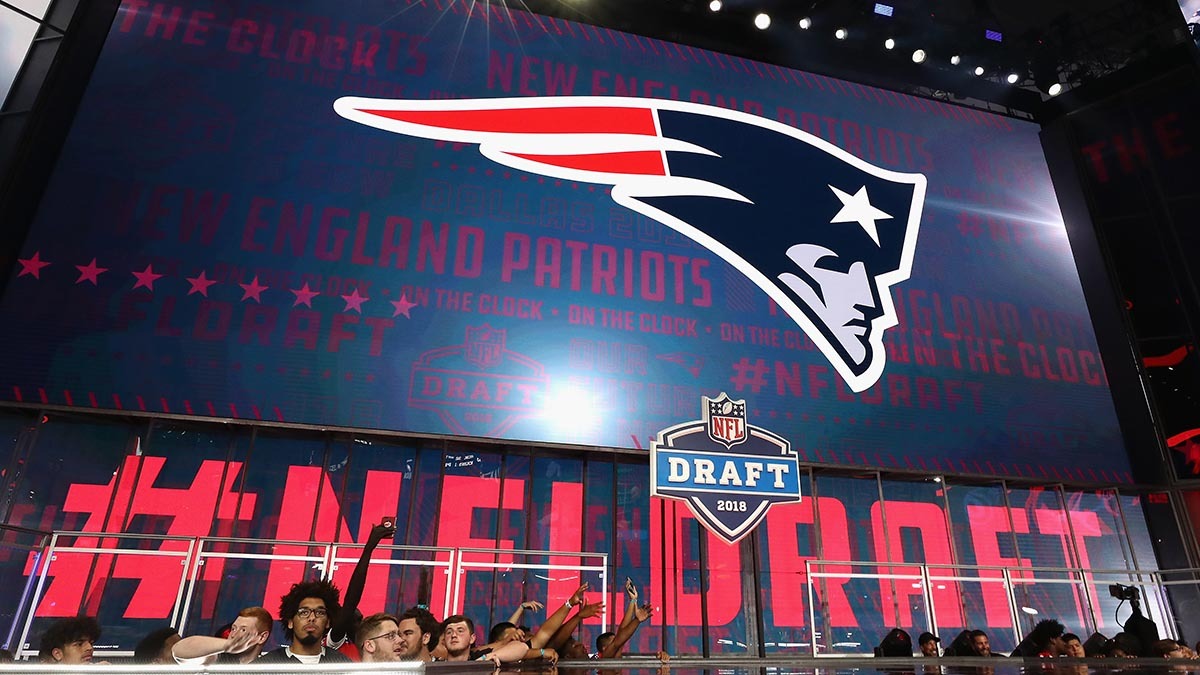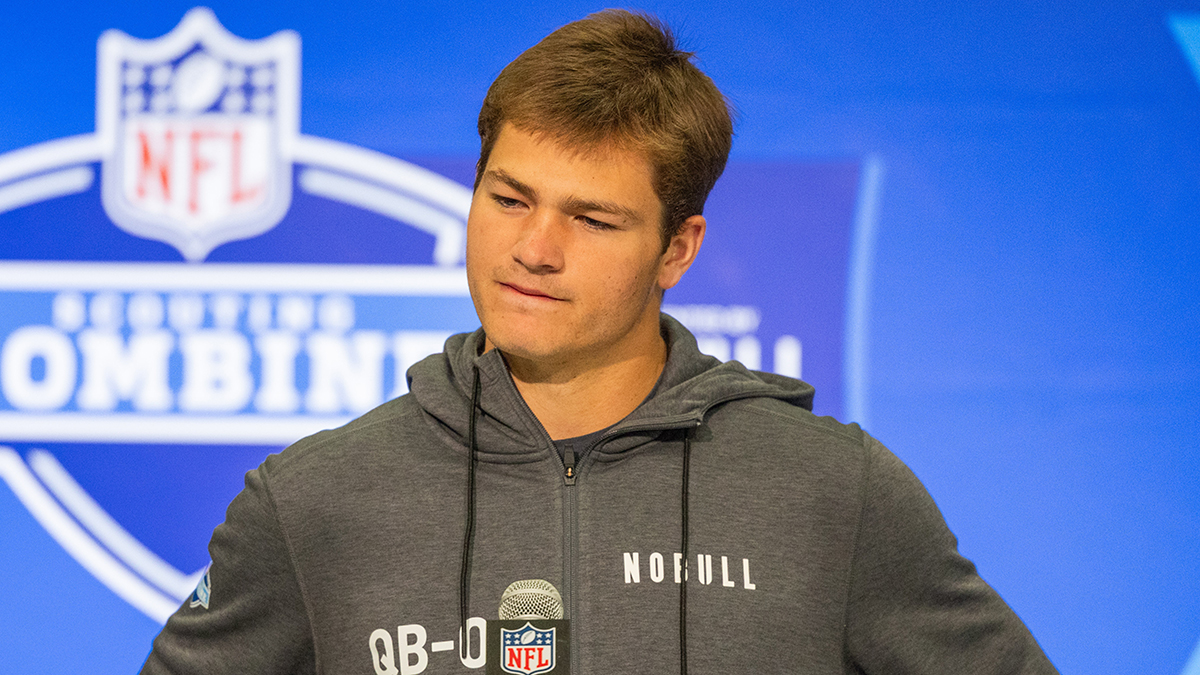During this week’s appearance on "Felger and Mazz", Jonathan Kraft raised a very simple point as it relates to his father's tenure as Patriots owner and Bill Belichick’s historic run as head coach.
SUPER BOWL LI: HEADING TO KICKOFF
- From soft-spoken to Patriots motivator: The transformation of Devin McCourty
- Tom and Gisele have their social-media game working
- Can Patriots float to victory today?
- Curran: Why I gave my MVP vote to Brady and not Ryan
- Reporting From Houston: Under-the-radar keys from Curran, Perry and Giardi
- Reporting From Houston: Curran, Perry and Giardi discuss whether or not the Patriots should play uptempo
- Patriots-Falcons game notes
- Curran's game preview and prediction
“Robert still to this day, in my opinion, doesn’t get anywhere near enough credit for that Belichick move,” Kraft said. “… I might argue, and I realize I’m not objective -- but I might argue that that’s the best trade that’s ever been made in sports history. And it gets lost because at the time, the perspective on our organization was we didn’t know what we were doing. And in reality, I think we had a pretty clear vision about what it was we wanted to do, and it worked out well. I think it really should get -- it was a pretty momentous occasion.”
At least from the standpoint of not getting enough credit for the trade, he's right: The best trade in the organization’s history wasn’t even made by Bill Belichick, but rather the guy who got him back to New England.
That said, Belichick’s certainly made some killer trades himself, especially in what was a very active 2007 offseason. Among them:
- The “don’t make us poison-pill your asses” deal in which New England traded a second and seventh-round pick to the Dolphins for the prime years of Wes Welker’s career. This was back in the heyday of poison pills, so the Pats could have not thrown in that seventh if they really wanted to upset their divisional opponent.
New England Patriots
- A fourth-rounder for Randy Moss in 2007.
-Belichick shipped the 28th overall pick in 2007 to the 49ers for San Francisco’s fourth and a 2008 first-rounder, correctly projecting that the 49ers would suck the next season and give them a top-10 pick. It ended up being No. 7 overall, and the Pats were able to trade down three spots and still get Jerod Mayo. The fourth was the pick they traded for Moss.
- A fourth-rounder in 2013 for Aqib Talib and a seventh-rounder.
But back to Kraft getting Belichick, which initially wasn’t intended to be a trade at all. The actual details of how Belichick came from the Jets back to the Patriots are documented excellently in this Bill Barnwell piece from Grantland. I recommend reading that, but here is the long and the short of what forced the Pats to part with the picks they did:
The Jets had it in Belichick’s contract that he would be the head coach of the team when Bill Parcels left that position. That happened in January of 2000 when Parcells resigned as coach, but since he kept his title of chief football operations in New York, the jobs for which New England wanted to interview Belichick -- head coach and general manager, per a request they sent over immediately following Parcells’ resignation -- presented a potential promotion. The Jets turned down New England’s request to interview Belichick.
One day later, Belichick cited the uncertainty of the Jets’ situation -- the death of owner Leon Hess, a potential sale of the team -- in the infamous press conference in which he used what was supposed to be an introductory presser to instead announce his resignation. The Jets confirmed with the league that Belichick couldn’t coach anywhere else, leading Belichick to file an appeal and then an antitrust lawsuit.
The Patriots went weeks without hiring a coach, and when the Jets were finally sold, new owner Woody Johnson worked out a deal with Kraft that netted the Jets a first-rounder in 2000 and fourth and seventh-round picks in 2001. In addition to Belichick’s rights, the Pats also got a fifth-rounder in 2001 and a seventh-rounder in 2002.
In trades involving draft picks, people get carried away with what the selections became rather than weighing whether the actual swap was a fair deal. In other words, if you trade a mediocre player for the first overall pick, that in and of itself is a good trade even if you spend the pick on the second coming of JaMarcus Russell. The trading aspect and the drafting aspect are two different things, and that usually goes overlooked.
Anyway, the Jets used the first-rounder received, No. 16 overall, to move up to No. 12 and take Shaun Ellis. They took cornerback Jamie Henderson with the 2001 fourth and defensive tackle James Reed with the 2001 seventh. The Pats flipped the 2001 fifth to the Lions for a sixth (Arthur Love) and a seventh (Owen Pochman). They used the 2002 seventh-rounder as part of a package to move up in the first round to take Daniel Graham.
Selections aside, any team would trade a first, a fourth and a seventh for a coach who could bring the success Belichick has. Other teams have moved draft picks -- in some cases more than New England did, and in one case much more -- for coaches with lesser results.
The Belichick trade was not the first exchange of draft picks between the Patriots and Jets over a head coach. The 1996 trade of Parcells to the Jets netted the Pats a first-round pick in 1999, a second in 1998 and a third and fourth in 1997. The Pats more or less whiffed on all of them: Andy Katzenmoyer (28th overall in 1999), Tony Simmons (52nd overall in 1998), Sedrick Shaw (61st overall in 1997) and Damon Denson (97th overall in 1997).
The craziest deal for a coach, of course, came in 2002 when the Buccaneers traded their first and second-round picks in the 2002 and 2003 drafts to the Raiders for Jon Gruden. The deal paid immediate dividends, with the Bucs winning Super Bowl XXXVII in his first season with the team. Though they traded up with the 2002 pick (that was the one that eventually made its way to New England and was spent on Graham), they came away with Phillip Buchanan, Langston Walker, Tyler Brayton and Jake Grove.
Then in 2006, the Jets traded their fourth-rounder to the Jets for Herm Edwards. The Jets ended up using that pick on Leon Washington.
Trading coaches doesn’t happen often, and when it does there’s a collective holding of the breath given how crucial an asset good draft capital can be. The 2000 offseason saw Robert Kraft fork over a whole lot of it for his next head coach and de facto general manager, a guy who soon after showed even better use of draft picks when he turned a single sixth-rounder into perhaps the best player in league history.


